Buildher
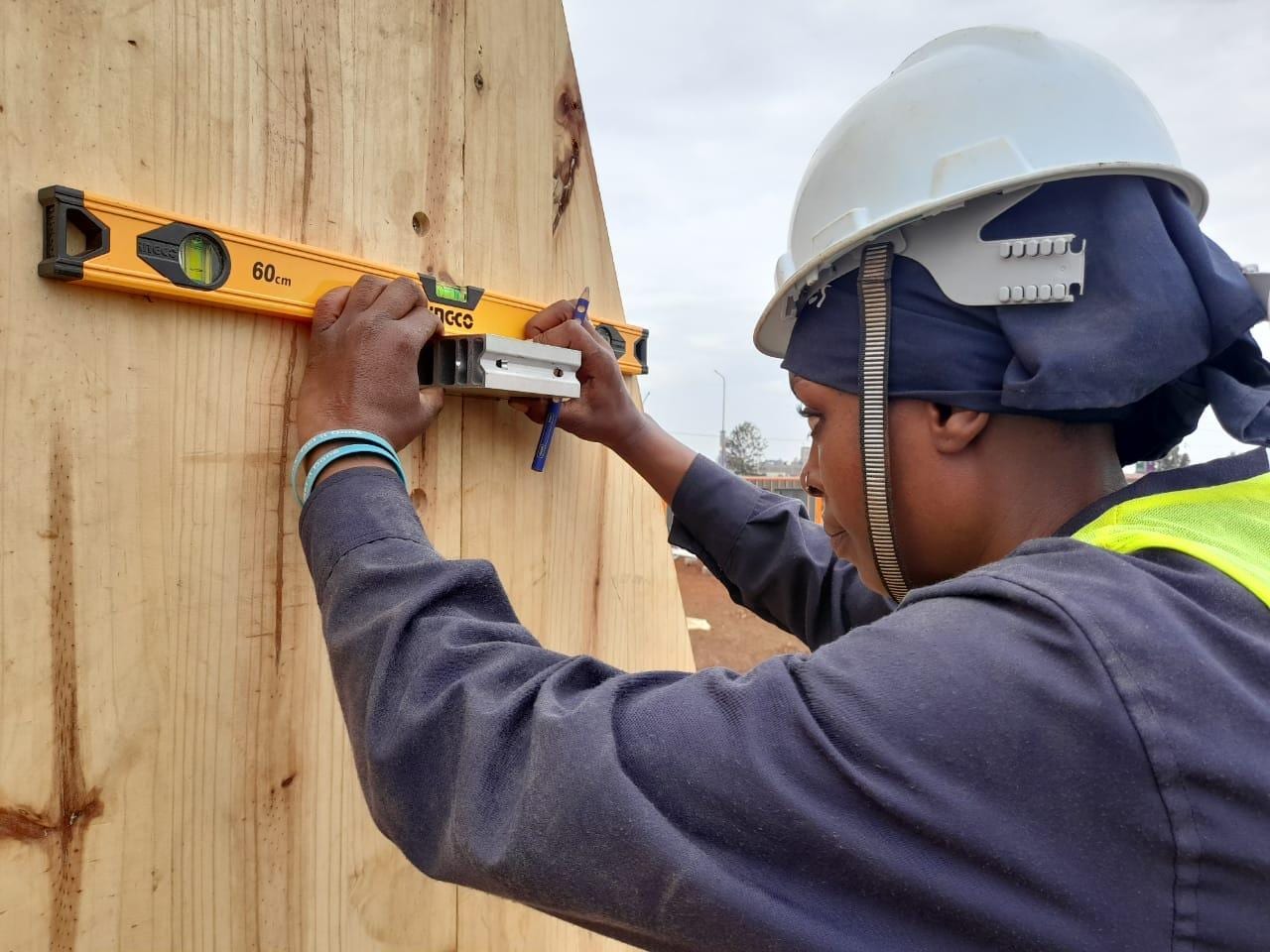
Location
Kenya
Sector
Infrastructure (Construction)
Type of Investment
Grant
Project Stage
Pilot
Length of Investment
2021 - 2024
Website
Investment Overview
Buildher works to advance gender inclusivity in construction through its innovative work placement and direct support to firms to create gender inclusive workplaces. GIF’s pilot investment to Buildher aimed to recruit more women, improve cost effectiveness and strengthen partnerships for scaling strategies.
The Development Challenge
In Sub-Saharan Africa, gender disparities persist in employment quality, with women facing lower earnings and limited opportunities for advancement. Women often earn less, work in less productive roles, and are overrepresented in unpaid family labour and vulnerable work. In construction, a traditionally male dominated industry, women constitute only 9.5% of the global construction workforce. According to the Kenya Economic Survey, the construction sector was the sixth largest for waged employment in 2019, contributing 7.5% of all waged jobs in the economy and creating 25,000 waged jobs in the preceding five years. However, only 17% of these waged employees were female, indicating systemic barriers to women's entry into a sector that offers competitive wages and skill premiums.
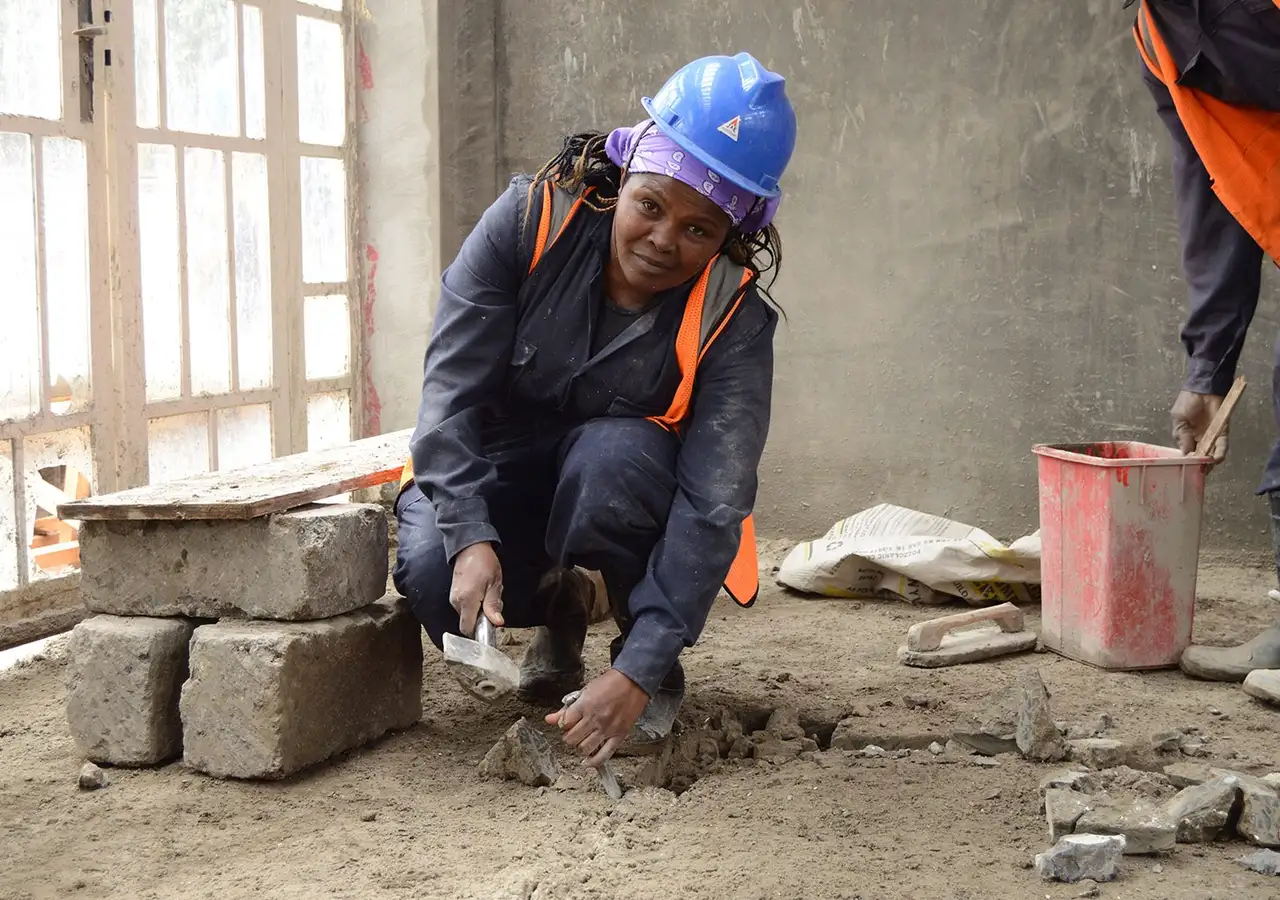
The Innovation
Buildher, a Nairobi based social enterprise, seeks to advance gender inclusivity in the construction sector in Kenya and to improve the livelihoods of low income women. Its innovative work placement programme recruits women from informal settlements and takes them through four to six months workshop based educational training, comprising technical skills and life skills components to get them employment ready. This is followed by an eight month placement, during which time women transition from semi-skilled to skilled workers and ultimately secure jobs in the construction industry. Buildher also supports partner firms in adapting their workplaces through physical adjustments, policy changes, and staff training, fostering inclusivity and safety for women. It collaborates with construction companies and the government to challenge gender norms and advocate for sector wide reforms, aiming to make construction a viable and rewarding career option for women.
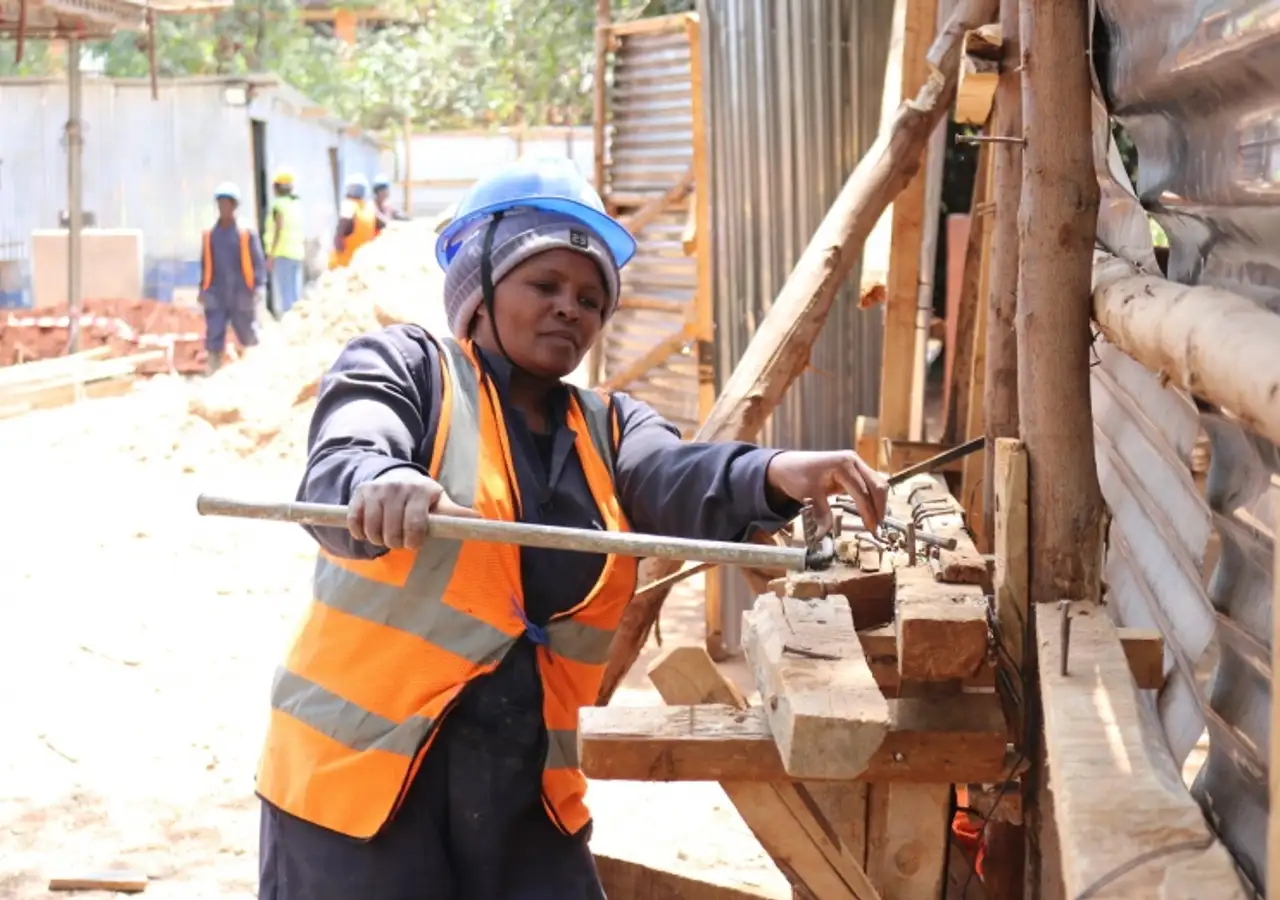
Our Investment
In 2021, GIF awarded a grant of $230,000 to Buildher to expand their efforts in empowering women through skilled employment in the construction sector. Under this grant, Buildher will recruit more women into the program, support them in securing skilled jobs, improve their monitoring processes and better assess cost-effectiveness. Additionally, Buildher will strengthen partnerships with construction firms and the government to create an inclusive space for women workers in the construction sector and promote gender equality.
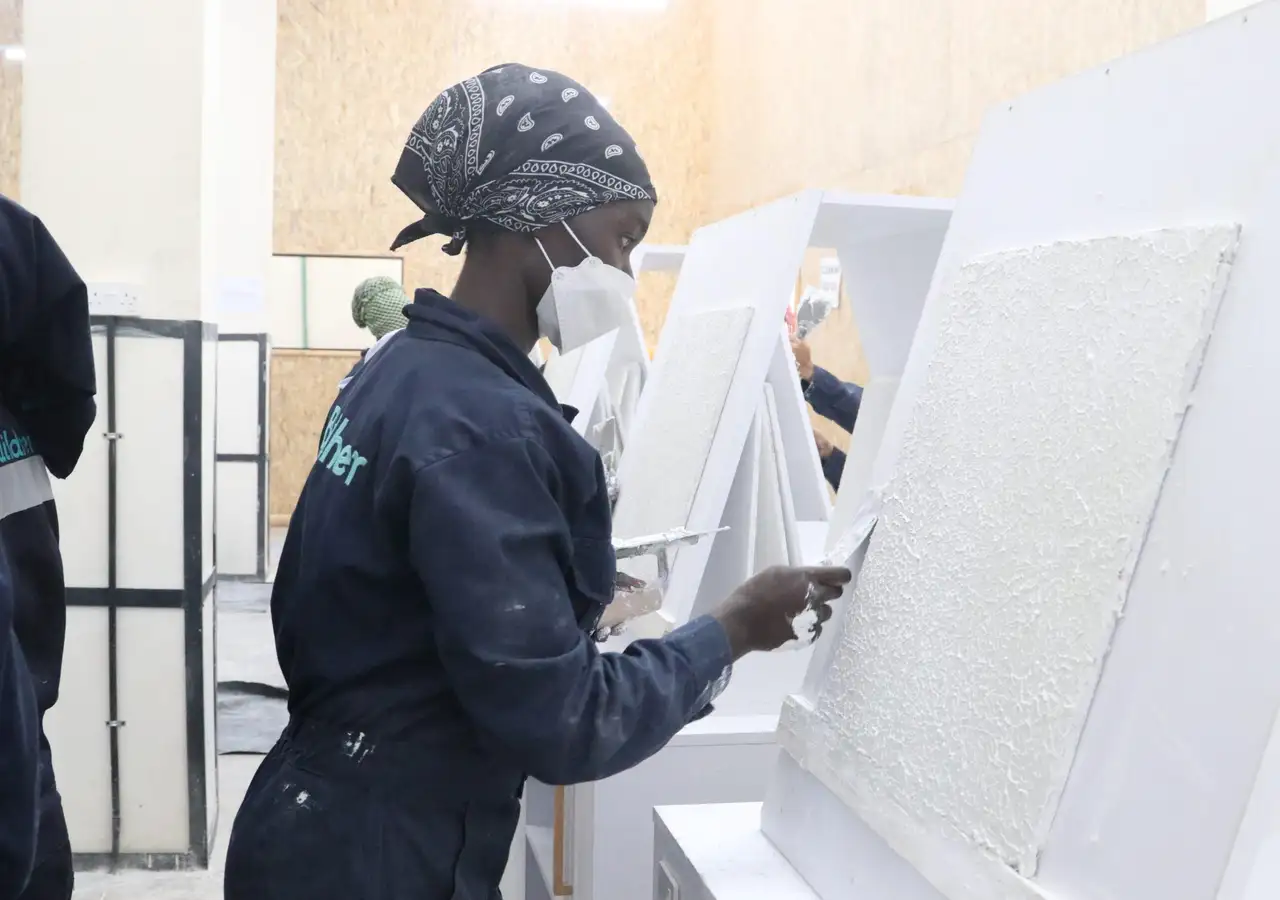
Outcomes
Since GIF’s investment in September 2021, Buildher has significantly expanded its reach and impact, supporting over 600 women through technical and life skills training for employment in Kenya’s construction sector. More than 90% of graduates transition into employment within six months, earning an average monthly income of $227. Buildher adapted its programme design in response to learnings from earlier cohorts, introducing deeper skills development, stronger psychosocial support and a more flexible model for supporting employment transitions. Graduates are now better equipped to independently navigate job placement, supported by guidance and employer engagement where needed.
To drive broader change in the sector, Buildher has worked with over 75 partner firms to promote more inclusive workplaces, including implementing policies on sexual harassment, adapting job sites to be more accessible, and ensuring fair pay. In collaboration with the Women in Construction Council, Buildher also hosted Kenya’s first Women in Construction conference, convening over 300 trained women, employers and partners to advance gender equity in the industry.
Through GIF’s supported work, Buildher generated tools and insights to advance inclusive training and employment in the sector including the 500+ Women Evaluation Report, documenting outcomes and lessons from the programme’s early cohorts, and gender-responsive TVET Guidelines developed for broader sector adoption.
While formal government integration efforts are ongoing, Buildher has laid strong groundwork and is now well positioned to pursue long-term sustainability and scale with a strong scalable model, strengthened systems, partnerships, and financial strategies.
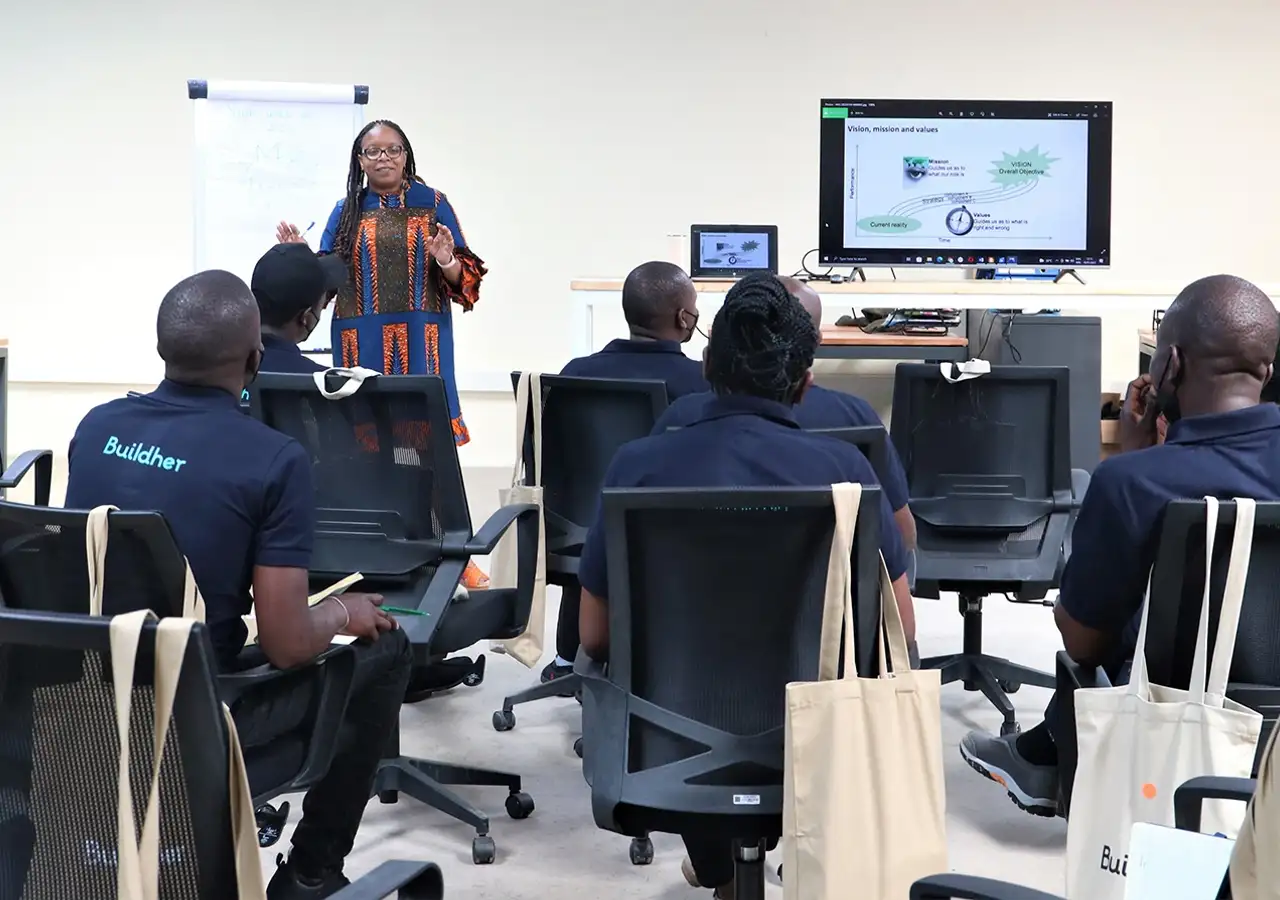
Buildher in numbers
GIF grant
of graduates transition into employment within six months, earning an average monthly income of $227
Women supported through technical and life skills training for employment in Kenya's construction sector
Part of the GIF Gender Equality Fund
Buildher trains women from Nairobi’s informal settlements through a 12-month programme to help them secure skilled employment in the traditionally male-dominated construction sector; and works with partner firms in the construction sector to make their workplaces more gender inclusive, including through changing workplace facilities and enacting sexual harassment policies.
The social enterprise used a $230,000 pilot grant to expand the current programme by onboarding new partner
firms and training more women. GIF investment also aimed to enabled Buildher to strengthen its monitoring and evaluation function to better assess the impacts for women, including the agency gains they experience from succeeding in an industry from which they have typically been excluded.